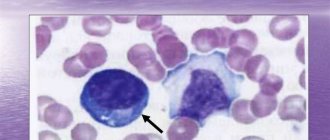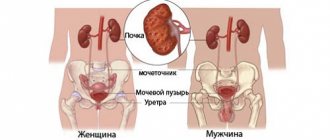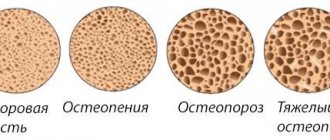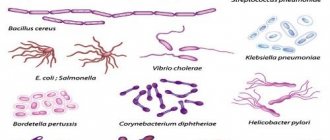The high mortality rates of people diagnosed with bowel cancer are due to too late detection of the pathology. It is possible to save a patient’s life if the disease is detected in the initial stages. Difficulties in identifying intestinal cancer are caused by the lack of appropriate symptoms in the early stages, due to which the patient does not go to the clinic for examinations. To identify pathology, it is necessary to carry out regular examinations. One of the simplest examination methods for detecting colon cancer is a blood test. How blood test indicators for intestinal cancer make it possible to identify pathology, we will find out in the material.
Bowel cancer, symptoms
Cancer is an asymptomatic disease. Specialists prescribe a blood test if bowel cancer is suspected, after certain symptoms have appeared:
- A vague symptom may simply be abdominal pain, but there is intestinal bleeding, which can be seen during a stool occult blood test.
- The occult blood test can even be performed at home. If the first test for cancer, a home occult blood test, is positive, then a colonoscopy should be performed. Now it is done under anesthesia.
- Problems with stool - this can range from frequent constipation to diarrhea.
- Gas incontinence, especially during exercise.
- Constant desire to go to the toilet “in a big way”, lack of feeling of emptiness.
- Fecal incontinence.
- Bloating.
- With partial or complete intestinal obstruction, cramping and frequent abdominal pain.
- Anemia, general weakness.
- Vomiting caused precisely by urges from the intestines.
- Nutrients are poorly absorbed, resulting in weight loss.
If you notice several of these symptoms, you should see a doctor as soon as possible. A timely blood test for colon cancer can alleviate your condition and even save your life.
Preparing for diagnosis
To test for the presence of tumor markers-glycoproteins, you need blood, which should be donated in the morning and strictly on an empty stomach. That is, the last meal should be no less than 8 hours before taking the sample. It is also undesirable to drink sweet drinks the night before and take one of the B-group vitamins - B7. The latter distorts the result of the analysis for identifying the CA 72-4 antigen.
It is forbidden to drink alcohol (at least 48 hours before the test). The day before diagnosis, you should avoid heavy physical activity. Before donating blood (one hour), you should refrain from smoking.
The Tu M2-RK enzyme is isolated from feces for laboratory research, so you also need to prepare for this test for tumor markers for intestinal cancer. A small amount (about a tablespoon by volume) of feces is placed in a special sterile container and delivered to the laboratory. It should be borne in mind that laxatives or an enema should absolutely not be used for defecation - the material must be obtained naturally.
The timing of tests for different tumor markers for colorectal cancer differs:
- results for antigens CA 19-9, CA 242 and CEA will be ready within 24 hours;
- detection of glycoprotein CA 72-4 will take from 3 to 7 days;
- Stool examinations last a week.
The conclusions issued in the laboratory make it possible to decipher information about the results.
What blood test will show intestinal cancer?
Is it possible to determine oncology by blood, and what tests need to be taken for intestinal cancer? To study the problem as much as possible and find effective treatment methods, modern medicine uses three test options:
- general (clinical);
- biochemical;
- for cancer markers.
How is the analysis done?
Tests for intestinal tumor markers can be carried out in absolutely any laboratories, both public and private. Determination of the level of colorectal cancer markers is carried out using the patient's blood as a biological material. To prepare for being tested for cancer, you must adhere to the following rules:
- Avoid eating 8 hours before donating blood;
- donate blood in the morning;
- A few days before the test, it is recommended to exclude sweet, fatty, smoked and fried foods from the diet.
- Drinking tea, coffee or other drinks before donating blood is also prohibited.
Blood tests are taken from a vein, after which its study can last for seven days. If patients have previously been diagnosed with tumors, they need to be tested for tumor markers regularly.
The results of a study of one tumor marker cannot be accurate, so the results of indicators that are carried out in combination are usually taken into account. For example:
- marker CA 242 and CEA - allows you to identify crustacean neoplasms in the stomach;
- CA 19-9 together with CEA - allows you to detect colorectal cancer;
- combination of CA 19-9, CA 242 and CEA - used in the case of colon cancer.
To detect pyruvate kinase produced by malignant cells of the gastrointestinal tract, it is necessary to study Tu M2-PK. It is worth noting that an increase in the concentration of tumor markers in the blood may not always indicate the presence of cancer. Increased levels of CEA are often observed in the case of venous diseases and pathological processes occurring in the liver, for example, in the case of cirrhosis or Crohn's disease. Therefore, the results of any biochemical tests should always be confirmed by data from other studies (MRI, CT, ultrasound).
We recommend reading Tumor marker HE 4 - what does a blood test mean and show?
What will a general blood test show for colon cancer?
The development of a tumor in the intestine may be indicated by the following results of a general blood test:
- Anemia may indirectly indicate intestinal cancer if there is a rapid decrease in hemoglobin levels, which occurs with prolonged bleeding from a tumor. If the presence of anemia is confirmed, the patient is immediately sent to a gastroenterologist for consultation.
- At risk for anemia are women during menopause and men over 45 years of age.
- Anemia is caused by colorectal cancer and malignant tumors.
- Leukocytosis - specialists should be alerted to high levels of leukocytes, which indicate long-term inflammatory processes in the body, and the likely presence of a malignant tumor.
- You need to be especially careful when detecting myeloblasts or lymphoblasts.
- ESR - if the level of erythrocyte sedimentation rate is elevated and does not decrease with antibacterial or anti-inflammatory therapy, then there is a suspicion of cancer.
Studying the results of the general analysis
Normally, the amount of hemoglobin as the main component of red blood cells is 120-150 g/l in women and 130-170 g/l in men. In case of tumor development, its decrease to 128 g/l is observed.
The number of white blood cells, which protect the body from toxins, dying cells, viruses and bacteria, in a cancer patient is several times higher than normal. A general blood test allows you to determine the number of platelets, indicating the development of cancer.
Rectal cancer causes an increase in the number of leukocytes in patients in the second stage of the process to 8-9 thousand/mm³, and in some cases hyperleukocytosis is observed - 40-50 thousand/mm³. The total number of young cells gradually increases. The erythrocyte sedimentation rate (ESR) reaches high levels, and even after a course of treatment, high levels persist for a long time.
Normally, ESR in a healthy person is 1-15 mm/h. If the rectum is involved in the tumor process, the erythrocyte sedimentation rate reaches critical figures - 60-70 mm/h. Additional research is necessary if high levels of not only ESR, but also hemoglobin are detected.
What does a biochemical blood test say about cancer?
Biochemical studies are taken into account in many diseases, and malignant tumors are no exception. Important indicators of biochemical analysis that you should pay attention to:
- urea - may indicate intestinal obstruction, which is a sign of colorectal cancer;
- total protein - a reduced level indicates intestinal diseases;
- Any fluctuations in hormones, deviations from the norm of elements indicate diseases or inflammatory processes within the body.
- Cholesterol analysis, despite all the benefits of “good” cholesterol, its high levels can be caused by malignant tumors in the intestines.
- Problems cannot be ignored; it is better to immediately contact a competent specialist. In this case, you can not only find out your diagnosis, but also begin timely treatment.
What tumor markers exist?
Markers do not necessarily indicate malignant tumor processes. Such substances are natural to the body. The values increase during pregnancy, when the pregnant woman feeds the fetus. Intestinal tumor markers are usually divided into precise specific and rough nonspecific proteins.
Nonspecific markers
These substances are detected in cancer of the heart, kidneys, intestines and brain. With their help, they think about the presence of a malignant tumor, but it is impossible to indicate the exact location.
The group includes:
- Alpha fetoprotein (AFP) is a glycoprotein that also appears during gestation.
- LASA-P – liver antibodies to malignant tumors.
- Tu M2 PK – using Tu protein, the metabolic rate of cancerous tissues is determined. The indicator is considered a marker of choice; it is used to determine pathological growth in the body.
Such studies are not very specific. With their help, they determine the growth of cancer in the gastrointestinal tract, lungs, and nervous system.
Remember, deviations from the norm do not provide complete confidence in malignant growth. If there is a suspicion of an increase in oncological values in the blood and body fluids, a thorough examination by specialists is required.
Specific markers
The group includes substances characteristic of the pathology of a particular organ. For example, for the stomach, liver or rectum. Their detection makes it possible to indicate the location of cancer with a high degree of probability. When the intestinal tract is damaged, the following indicators are most often detected:
- Carcinoembryonic antibodies (CEA) are a protein of cancer of the initial parts of the intestine. By assessing the results of the identified values, it is possible to predict and control the growth of small intestinal tumors. Decoding of CEA indicators is carried out to analyze the quality and success of treatment.
- CA 72-4 - this protein is often tested for detection in conjunction with cancer antibodies. The protein can be detected in tumor tissues of the large and sigmoid intestines in the small cell type. Increased antigen values also indicate colorectal cancer.
- CA 125 – The main indicator of cancer of the thick sigmoid part.
The detection of antibodies and proteins in the indicators indicates particularly malignant growths in the digestive tract.
Cancerous tumor in the intestine
Tumor markers for colon cancer
Correctly selected blood tests for cancer markers can accurately diagnose or refute suspicions of intestinal cancer.
- The waste product of cancer cells and specific proteins are cancer markers. Their appearance in the blood and growth indicates the presence of cancer and the development of this disease within the body.
- There are situations when the active development of these proteins does not indicate cancer, but a serious inflammatory process inside the intestine.
- A blood test for cancer markers determines not only the presence of a tumor, but also:
- its type (benign or malignant);
- stage of development;
- dimensions;
- the body's response to cancer cells;
- allows you to monitor and control the effectiveness of treatment.
Oncological markers that specifically indicate the development of intestinal cancer:
- Antigen CA-19-9 indicates not only the development of intestinal cancer, but also pancreatic and stomach cancer.
- Carcinoembryonic antigen (CEA) - at the beginning of the disease, indicators increase rapidly and do not decrease over time.
Immunological analysis
General clinical analysis and biochemistry suggest a developing pathology. Also informative is the method of determining intestinal cancer using a blood test for tumor markers.
A tumor marker is a product of the vital activity of neoplasm cells.
It is possible for cancer to develop, for example, from a small harmless polyp in the intestine. Over time, the malignant growth of the polyp will lead to a cancerous tumor. In the initial stage, a person does not suspect the development of oncology. But degenerating cells cannot exist without releasing waste products, and already at an early stage antigens can be determined by immunological analysis.
When diagnosing intestinal cancer, five tumor markers are identified that help determine the type of tumor, stage of development, and body reaction.
- Tumor marker CEA. This antigen is used to diagnose rectal cancer and determine the stage of development of the pathology. When an oncological process develops in the body, the level of carcinoembryonic antigen increases. Under normal conditions, the REA level readings are low. There is also an increased level of CEA in smokers.
- CA 19-9 is a cancer marker that is used to assess the likelihood of tumor recurrence and the possibility of complete removal of the tumor. Used in the diagnosis of colorectal and pancreatic cancer. If CA 19-9 levels are above 1000 U/ml, then in 90% of cases this is the last stage - inoperable cancer.
- CA 72-4 is an antigen used in the diagnosis of inflammatory processes in the gastrointestinal tract, oncology of the stomach and ovaries. Normally, it is completely absent from the body or present in minimal quantities. When a malignant tumor develops, cancer cells begin to produce it in large quantities. Marker reference values are 0-4.6 IU/ml.
- AFP – alpha fetoprotein. Shows the presence of metastases in the liver, which is possible with an advanced state of the tumor and is a frequent companion to cancer of the small and large intestine in the later stages.
- Tumor marker CA-125. This marker is used to diagnose ovarian cancer, but if the result is positive, there is also a high probability of colorectal cancer - 88%. Normally, the level of CA-125 is not high, but with sexually transmitted infections, peritonitis, liver cirrhosis and chronic pancreatitis it can reach up to 100 units/ml. If the level is higher, this is a consequence of a malignant neoplasm.
Who is recommended to take these tests?
In order to protect yourself and save yourself from a terrible diagnosis, it is recommended to undergo a systematic (once a year) full examination. Those at risk for a disease such as intestinal cancer are:
- people over 60 years of age;
- who in the family has had such a problem as cancer, a hereditary factor;
- people suffering from frequent colitis, diarrhea or constipation;
- heavy smokers and alcohol drinkers;
- patients with a deficiency of B vitamins, especially
Interpretation of results
Normal indicators
If the results of the study show a deviation from the norm, this may indicate not only the presence of cancer, but also inflammation in the body.
In people without pathology, blood tests for cancer markers correspond to the following values:
- CEA is defined as 0-3 ng/ml.
- Normally, CA 72-4 is not present in the blood, but an increase in the test result to 4 units in 1 ml of blood is allowed.
- SCC in the absence of pathology is 0-2.5 ng in 1 milliliter of the test material.
- CA 19-9 and CA 125 cannot be more than 37 U/ml.
- AFP in the absence of cancer does not exceed 15 ng/ml.
- Up to 20 units, CA 242 and LASA-P indicators are not pathological.
- Tu M2-RK cannot exceed 15 units.
- CYFRA 21-1 is normally absent in the body.
An increase in cancer markers in people without the disorder is called a false positive. This can happen if there are inflammatory processes in the organs of the digestive tract, organic changes, or benign formations. An incorrect result is also possible due to violation of the rules for preparing for analysis. Therefore, it is necessary to take a comprehensive approach to interpreting the level of tumor markers in order to prevent diagnostic errors.
Deviations
An increase in concentration means the occurrence of atypical cell growth in one of the parts of the intestine, pancreas or gall bladder. A slight increase in tumor markers indicates stage 1-2 cancer. If the level of these substances increases several times, this means the presence of stages 3-4 of intestinal damage, which have an unfavorable prognosis.
If after surgery, the administration of chemotherapy drugs and courses of radiation radioactive therapy, tumor markers do not decrease, this indicates incomplete destruction of cancer cells. This result requires a change in treatment methods and the use of more aggressive therapy to completely eradicate the tumor tissue.
Endoscopic methods for diagnosing colon cancer
Diagnosis of intestinal cancer can be done using different methods, but endoscopic examination methods are the most accurate for diagnosing intestinal cancer. The most commonly used research methods are:
- video colonoscopy, with biopsy;
- high-resolution narrow-spectrum video colonoscopy with 136x optical zoom function, with biopsy;
- a new method is swallowing a capsule instead of a colonoscopy.
Colonoscopy
- Endoscopic research methods - video colonoscopy and high-resolution narrow-spectrum video colonoscopy with an optical zoom function of 136 times, differ mainly only in the quality of optical zoom and review.
- Typically, the colonoscopy procedure is performed under general anesthesia.
- The world standard stipulates that during the colonoscopy procedure, polyps and other neoplasms, if any, are immediately removed.
- The removed biomaterial must be submitted for cytological examination or biopsy to determine whether the formation is benign or malignant.
- The colonoscopy procedure requires special preparation, which the doctor must tell you about.
Decoding the results
In medical practice, there are several methods that allow you to determine the presence of rectal tumor markers. Since their concentration can be measured in different units, normal values in different laboratories, as a rule, differ slightly from each other.
To obtain the most accurate assessment, it is better to repeat the donation of biological fluid in one laboratory.
To determine the dynamics of the oncological process, as well as to evaluate the effectiveness of the therapy, increased attention is paid to the tumor marker CEA. If its indicators increase, this will indicate the progression of the disease. In addition, even in the absence of characteristic symptoms, when the pathology is still in its infancy, the protein level will already be elevated.
New method, swallowing capsules instead of colonoscopy
A new method has been invented for examining the small and large intestines using a capsule that is swallowed.
- Unlike colonoscopy, the capsule swallowing method is less traumatic and very accurate for diagnosis.
- During the colonoscopy procedure, most of the large intestine is viewed, and only a small part of the small intestine.
- The capsule swallowing method allows you to see the small and large intestines.
- This examination is carried out using a highly sensitive micro-camera, which is enclosed in a very small capsule.
What are tumor markers
Tumor markers are certain proteins found in the blood. In a normal state, their presence can be observed in a healthy person, but only the concentration does not exceed the established norms. In the case of a cancerous phenomenon, such as colorectal cancer, malignant cells begin to synthesize the production of this protein, as a result of which the level of tumor markers in the blood increases. When colon tumors form, tumor markers can be used to identify the location of tumors and determine the stage of development.
How the capsule works
- It is enough to swallow the capsule, and as it moves, a sensitive microscopic photo camera in the capsule takes 20 to 30 frames per second.
- A person swallows the capsule, then it enters the stomach, then the duodenum.
- Then it moves through the small intestine and passes into the large intestine.
- The capsule comes out of the large intestine on its own.
- After exit, the capsule is opened, and the images taken by the microcamera are viewed and analyzed.
- The capsule remains in the patient’s body for approximately 15-16 hours.
- Additionally, a recording device is attached to the patient on a special belt, which operates while the capsule moves.
- After the capsule comes out, it is removed, and the data from this recording device is also decrypted and analyzed on the computer.
- Special preparation is carried out for the procedure, and the patient is under the supervision of a doctor throughout the entire examination process.
How to prepare?
Preparation for the procedure includes following a special diet for three to four days.
To check the intestines for oncology, you need to adhere to rules that can minimize the possibility of deviations from the true results. The main ones:
- 3-4 days before the diagnostic procedure, follow a diet. It is necessary to exclude junk food, fatty foods, easily digestible carbohydrates, and foods that increase the functional load on parts of the intestinal tract.
- Do not drink alcohol or coffee 3-4 days before diagnosis.
- Perform the procedure in the first half of the day on an empty stomach. You can take the test only 10-12 hours after eating.
- Stop the use of drugs that can affect blood counts: hormonal agents, sulfonamides, PPIs, antacids. If discontinuation of medications is not possible, be sure to notify your doctor.
- Do not smoke 12 hours before the test.
Additional cancer diagnostic methods
Colon cancer can be diagnosed using different techniques. Most often used:
- Ultrasound, X-ray, digital examination.
- Endoscopic examination methods, video colonoscopy with biopsy.
- Laboratory tests are also necessary.
- Additional PCR blood test to exclude intestinal tuberculosis.
- MRI - magnetic resonance imaging.
Analysis of feces and urine for occult blood
Screenings and test samples are used to determine the presence of occult blood in stool and urine. Two methods are considered the most effective and informative:
- An immunochemical test is prescribed to identify pathological processes in the lower parts of the digestive system. Most often used in colorectal oncology;
- The benzidine test or Gregersen test is carried out chemically to detect blood clots in all structures of the gastrointestinal tract (gastrointestinal tract).
Organs of the gastrointestinal tract
The digestive system is the most massive in the human body. The length of the digestive canal in the body of an adult male reaches an average of 10 meters. The development of a malignant process in any part is accompanied by similar symptoms. Lack of bowel movements for 4 days, constipation, and bloating can be warning signs of many types of cancer. To determine the exact location, you need to understand the structure of the intestinal tract.
Small intestine
The first site of food absorption in the body is the small intestine. Conventionally, it is divided into duodenal, jejunal and sigmoid sections. The pathological process is localized in all areas equally, but tests for tumor markers give different results.
- CEA is the main marker of cancer of the small intestine, mainly the middle section. The values of this protein increase in cancer of the jejunum and, less commonly, of the ileum.
- CA 19-9 is an oncology antibody of the very first section of the intestine, the duodenum. It can also be detected by analyzing tumor markers of the stomach and esophagus.
Colon
The large intestine is the last section of the digestive tract. Here feces are formed and abundant enzymatic reactions occur. The large intestine contains a variety of microflora, so cancer in these sections is easily detected by the results of protein tests in the blood and stool.
The main structures of the large intestine are the cecum, colon, sigmoid and rectum.
- CA 125 – protein 125 is assessed for suspected sigmoid colon cancer.
- CYRFA 21-1 is the name given to the conditional brother of rectal cancer. A critical increase in indicators occurs precisely with this type of cancer.
- SCC - like the previous marker, signals the development of cancer in the last section of the intestine.
Stages of bowel cancer
Home cancer tests
Occult blood test
Cancer tests can be done at home. Test kits are available freely in pharmacies, there are more than three types. Everything you need to carry out the test is included in the kit, and there is a description. Types of cancer tests you can do at home:
- Blood tests. You can take blood from your finger yourself by purchasing a kit at the pharmacy.
- Urine tests.
- Fecal tests for occult blood.
For example, tests for three common cancers:
- PSA test - for common prostate cancer.
- Test for colon cancer.
- Test for bladder cancer.
How to read test results:
- If there is 1 line on the indicator, it means there is no cancer.
- If there are 2 stripes on the indicator, this means there is cancer.
- If something is wrong, then you need to urgently look for a good doctor.
- Cancer tests are done at least once a year.
Bladder Cancer Antigen Test
It must be remembered that the presence of bleeding always indicates intestinal cancer. And, if you are careful about your health, do a home test. It's not difficult at all!
How to prepare for a tumor marker test
Blood for antigen tests is donated from a vein in the morning. Results are issued within 1-3 days, and in order for them to be reliable, you must follow certain recommendations:
- don't have breakfast;
- do not take any medications or vitamins the day before;
- three days before diagnosing cancer using a blood test, avoid alcohol;
- do not eat fatty or fried foods the day before;
- the day before the study, avoid heavy physical activity;
- on the day of delivery, do not smoke in the morning (smoking increases CEA);
- To prevent third-party factors from distorting the indicators, first cure all infections.
After receiving the results in hand, you should not draw any independent conclusions or make diagnoses. This blood test for cancer is not 100% reliable and requires instrumental confirmation.
A blood test for intestinal cancer is a mandatory test that allows you to identify severe pathology in the early stages and begin treatment on time. By regularly taking tests, the patient can monitor their health status and take timely measures if their health worsens.
The easiest way to monitor the development of the oncological process is with the help of a general and biochemical blood test. To successfully conduct the study, you need to explain the preparation rules to the patient.
If a patient has several main symptoms of intestinal cancer and at least one minor one, a clinical blood test will allow an accurate assessment of the degree of development of the pathological process in the body.











